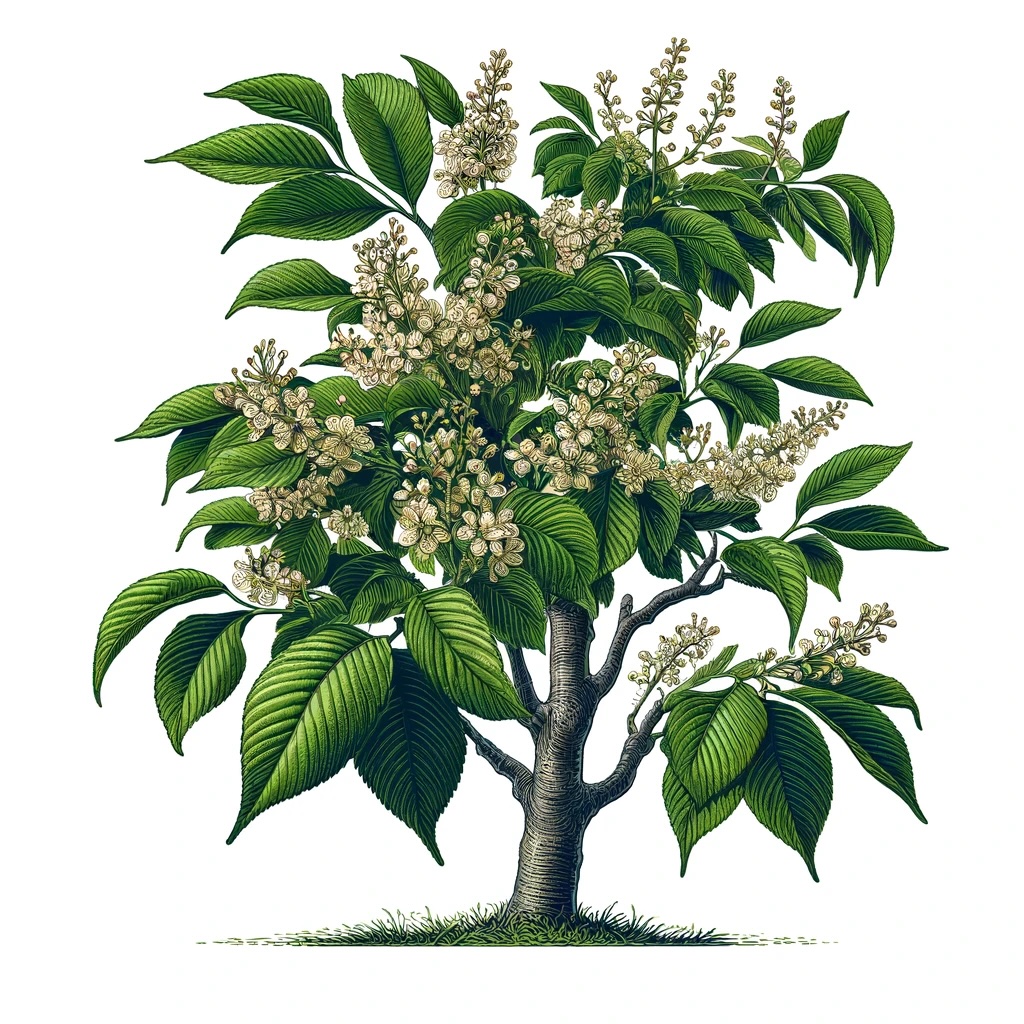This website contains affiliate links for products I use and love. If you take action (i.e. subscribe, make a purchase) after clicking a link, I may earn some tea money, which I promise to drink while creating more helpful content like this.
Breathe Easy with Nature's Best: Herbal Remedies for Respiratory Wellness

The respiratory system is one of the body's many functions that operates mostly outside our conscious awareness. On average, we take 22,000 breaths per day without giving them much thought. The lungs, aided by the diaphragm, are at the center of this system, supplying oxygen to the body as they inhale air. This oxygen is then transported to various organs and cells through the bloodstream, while carbon dioxide is exhaled back out from the lungs. Despite its effectiveness, the respiratory system is vulnerable to infections from external sources such as bacteria and viruses, including common illnesses like colds and flu. However, people have been using herbal remedies for respiratory health for centuries to combat these respiratory illnesses with great success. In this section, we will explore herbal treatments for better breathing and maintaining respiratory wellness.
Echinacea - Enhancing Immunity for Respiratory Health
Echinacea is a sturdy and vibrant wildflower that offers numerous health advantages. Out of all the herbs studied, it is one of the most extensively researched and has earned a reputation for reducing the severity and duration of the common cold. Its immune-boosting effects range from increased production of antibodies to elevated levels of interferon for fighting viruses, as well as stimulating white blood cells to combat infections in a more efficient manner.
The different species of echinacea, along with the various parts of the plant and extraction methods, contain several chemical compounds that have medicinal properties. These include polysaccharides, glycoproteins, and alkylamides, which can all help boost the immune system and prevent the spread of viruses and bacteria. Researchers continue to delve into the potential benefits of echinacea. While taking echinacea daily may not prevent catching a cold, some studies suggest that it may shorten its duration by a day or two if taken in sufficient doses at the first sign of illness.
Astragalus - Supporting Preventative Health Against Respiratory Infections
While many natural remedies are most effective when used at the first signs of illness, astragalus is most beneficial as a preventative measure. Scientific research has shown that extracts from the root of the astragalus plant can improve the functioning of various blood cells and increase antibody levels in healthy individuals. Additionally, it may boost levels of interferons, which are proteins that activate the immune system to fight off infections and tumors. By providing these benefits, astragalus can help prevent upper respiratory infections, particularly in people who are prone to colds and flus.
Butterbur - A Natural Ally in Fighting Seasonal Allergies
Butterbur has the ability to alleviate the signs of seasonal allergies, such as watery eyes, a congested nose, and constant sneezing. The plant's roots have anti-inflammatory properties and seem to hinder mast cells, which play a role in allergies and nasal obstruction. Even now, butterbur is used for its pain-relieving effects on joints, its soothing effects on coughs and bronchitis, and its ability to ease small intestine irritations.
REMEDIES FOR COMMON COLDS
Combatting Coughs with Natural Honey and Eucalyptus
Honey has always been a popular addition to kitchens for its delicious taste, but humans have also recognized its medicinal benefits. Studies have proven honey's antibacterial properties and effectiveness in treating cuts, scrapes, and wounds. It is also commonly used as a remedy for cold and flu symptoms such as coughs and sore throats.
Eucalyptus extracts from leaves and flowers have been known to alleviate symptoms of upper respiratory infections, colds, coughs, and asthma by promoting the expulsion of mucus from the lungs, widening air passages, and combatting inflammation in the airways. Eucalyptus is a common component in various over-the-counter remedies for coughs and colds, such as lozenges, chest rubs, and steam baths.
Licorice Root - A Sweet Solution for Sore Throats and Digestive Health
The demulcent properties of licorice root can provide relief for sore throats, coughs, heartburn, and gastritis by coating the affected tissues.
Elderberry - A Berry Effective Cold and Flu Fighter
Fresh elderberries are abundant in vitamin C and antioxidants, making them a beneficial remedy for colds and flu. Research has shown that elderberry syrup can significantly reduce the duration of symptoms associated with these illnesses. Additionally, elderberry products have been found to reduce inflammation in the mucous membranes, providing relief from nasal and sinus congestion, as well as alleviating symptoms such as sneezing, itching, and allergies.
Marshmallow Root - Soothing Mucous Membranes for Respiratory Relief
Whether they are floating in a steaming cup of hot cocoa or melting over an open campfire, marshmallows are beloved sweets by many. However, their origins can be traced back to a natural remedy that was created using the roots and leaves of the marshmallow plant. This plant contains polysaccharides, which are mucilage compounds known for their ability to soothe irritated mucous membranes. This makes marshmallow effective in treating sore throats, coughs, and indigestion. Additionally, when applied topically, marshmallow can also provide relief for dry and chapped skin.
Mullein - A Gentle Herb for Throat and Respiratory Health
Mullein, with its gray-green leaves and stems, has been utilized for centuries to alleviate symptoms of bronchitis, coughs, and other throat ailments. Acting as both an expectorant and a soothing herb, it coats and calms irritated respiratory tissues. Ingesting mullein leaf or flower tea is a traditional remedy for throat discomfort and is believed to provide respiratory benefits. The plant's various parts, including the leaves, flowers, and roots, can be used in infusions. Mullein has a rich medicinal history with its proven effectiveness in treating respiratory issues.
Pelargonium Sidoides - An African Herb for Chronic Coughs and Respiratory Health
Pelargonium has a long history of use as a medicinal plant in Africa, particularly by the Zulu, Xhose, Basotho, and Mfengu cultures. The root of the plant, known as pelargonium sidoides in modern herbal medicine, has been recommended by traditional healers for centuries to alleviate symptoms of respiratory infections like coughs, colds, sore throats, pneumonia, tonsillitis, and acute sinusitis. It is also believed to prevent secondary infections such as chronic bronchitis and is often used as an alternative to antibiotics for these conditions.
Sage and Thyme - Herbal Solutions for Sore Throats and Digestive Wellness
Known for its use in seasoning poultry and other savory dishes, sage is also a powerful remedy for ailments such as sore throats, coughs, and colds. For centuries, it has been brewed into a tea and used as a gargle to soothe throat discomfort. Modern research has validated this traditional use, finding that sage has potent antibacterial properties which may be why it is also used to treat minor infections in the gastrointestinal (GI) tract such as gastroenteritis.
Similar to sage, thyme is a highly fragrant herb that serves as both a spice and a medicinal plant. Thyme's aromatic properties work to ease coughs, using two different methods. The herb acts as an antispasmodic and expectorant, not only soothing the cough but also loosening mucus in the bronchial tubes. Additionally, thyme has antibacterial and antiviral properties.
The strong scent of thyme can be attributed to various chemicals within the herb, such as thymol and carvacrol. These chemicals are responsible for its expectorant properties, as well as its ability to inhibit bacteria, viruses, and fungi. Modern herbalists often suggest using thyme to alleviate symptoms of coughs, colds, flu, bronchitis, and asthma. Additionally, thyme is known to have a calming effect on the smooth muscles of the gastrointestinal system, making it a popular remedy for digestive issues.
Exploring the Power of Nature for Respiratory Health
As we have journeyed through the natural pharmacy of the earth, it's clear that the bounty of nature offers us a treasure trove of remedies to support and enhance our respiratory health. Each herb mentioned in this guide—from the immune-boosting echinacea to the soothing marshmallow root—carries with it centuries of traditional wisdom and the backing of modern research. These natural allies provide us not only with a means to combat common respiratory ailments but also offer preventive measures to maintain overall wellness.
We encourage our readers to explore each herb in more depth. Understanding the unique properties and potential benefits of echinacea, astragalus, butterbur, and others can empower you to make informed decisions about your health and well-being. Whether you're seeking to ward off the next cold, alleviate allergy symptoms, or simply support your body's natural defenses, these herbal remedies offer a path to healthier living.
But don't stop here. Our website is a rich resource for those looking to dive deeper into the world of health and herbal remedies. From detailed herb profiles to comprehensive guides on addressing specific health concerns naturally, we aim to be your go-to source for reliable, research-backed information. Explore our articles, read up on the latest findings, and join our community of health-conscious individuals who are embracing the power of nature to heal and nourish the body.
Remember, while herbal remedies can play a significant role in managing and improving your respiratory health, they should complement a lifestyle that includes a balanced diet, regular exercise, and adequate rest. We invite you to continue your journey with us, exploring the full spectrum of health and wellness topics that can help you live your best life, naturally.
Embrace the wisdom of nature—explore, learn, and thrive with the help of herbal remedies. Visit our website regularly for more insights into achieving optimal health through the power of plants.
The information provided on this website is for educational purposes only, and is not FDA approved. It is not to be considered health advice. Always do your own research and seek the guidance of a qualified healthcare practitioner before working with any herb. Herbal Ella is not liable for any action or inaction you take with the materials and information provided. Read here for more information.
Recent Articles
-
Wild Cherry Monograph: Wild Cherry: Nature's Respiratory Ally
May 02, 24 04:52 PM
Discover the healing potential of Wild Cherry with our comprehensive monograph. Explore its benefits and uses for respiratory health. -
DIY Herbal Remedies for Respiratory Health
May 02, 24 03:46 PM
Explore easy DIY herbal remedies for respiratory health with Herbal Ella. Learn to make teas, tinctures, and more to breathe better naturally -
Understanding the Respiratory System - Anatomy and Functions
May 02, 24 03:23 PM
Discover the respiratory system's anatomy and functions with clear visuals and simple explanations to keep you breathing healthily
* Privacy Policy * Disclaimer *










